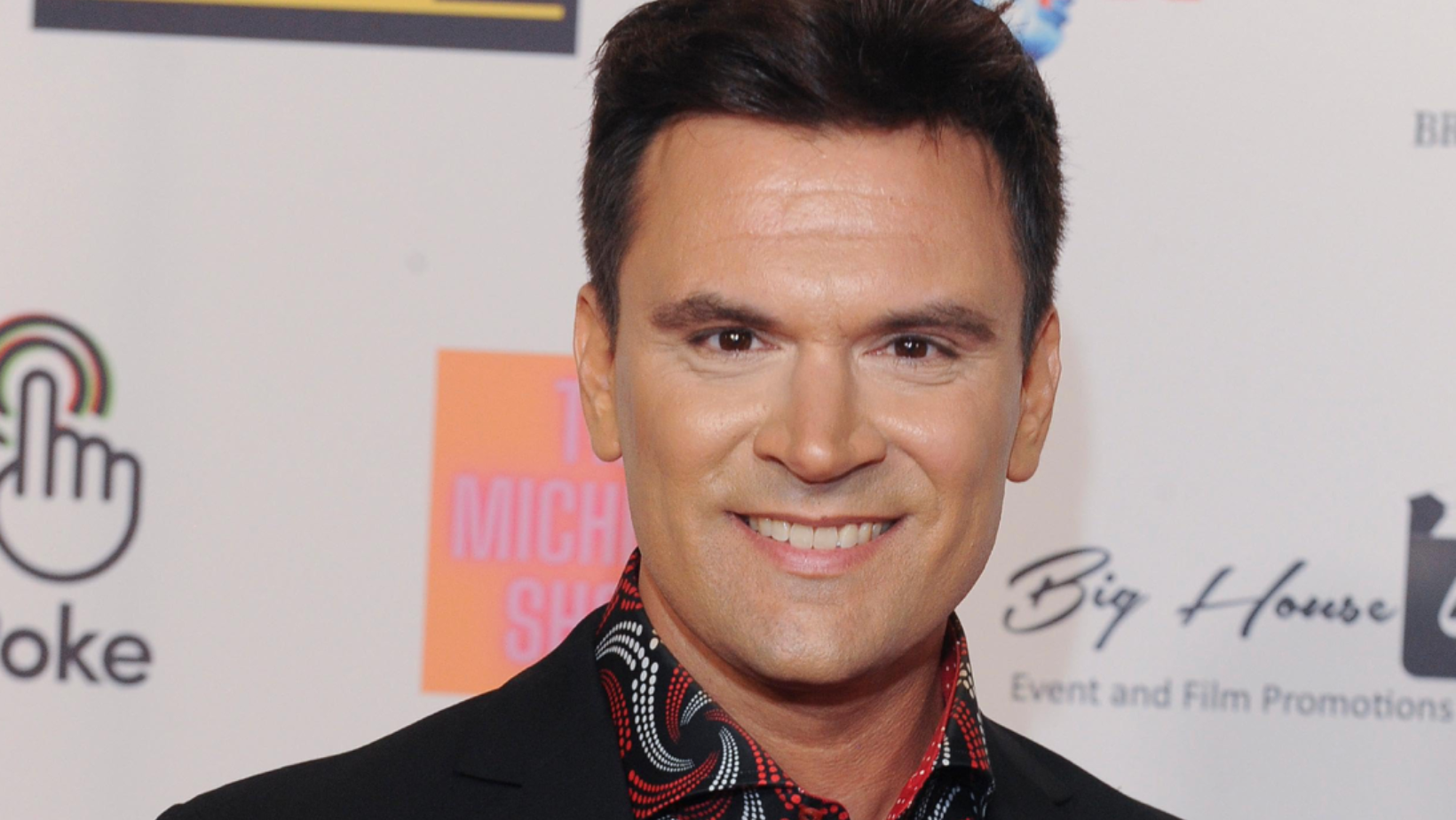
Born in Los Angeles, California, Kash Hovey is a producer and director who has stood out in the world of entertainment for his notable work in several productions. Kash gained recognition for his role as executive producer on the talk show ” On Air with Ka$h ” (2021-2024), as well as other works such as “The Hit” (2023) and ” Get Out”. He is also the cousin of Lisa Marie Presley, daughter of legendary singer Elvis Presley.
His career started early, but Kash Hovey has established himself over the years as a respectable producer. He gained notoriety with his show ” On Air with Ka$h “, where he interviewed major artists, providing valuable insights into the entertainment industry. Additionally, Kash Hovey had the opportunity to interview renowned director Tim Burton at the 2023 Burbank International Film Festival, an important milestone in his career. Kash ‘s filmography Hovey as a producer includes feature film work, short films and television series, spanning a variety of genres and styles.
Kash, you started your career early and have an impressive portfolio as a producer and director. How has your journey been so far, and what have been the main challenges you’ve faced along the way?
My journey thus far has been a testament to the power of perseverance and self-discovery. Starting my career early afforded me unique opportunities, yet it also presented its share of challenges. One of the most significant hurdles I encountered was overcoming the preconceived notions others had about me due to my familial or professional connections. Striking out on my own and forging my own path was essential for me to truly realize my potential.
Around a decade ago, I reached a pivotal moment of self-awareness. I realized that I wasn’t fully embracing my individuality or pushing myself to achieve my highest aspirations. This realization sparked a transformative journey where I actively sought to break free from my comfort zone and establish my distinct identity and career trajectory.
Since then, each passing year has marked a progression toward greater fulfillment and success. Embracing this mindset of continuous growth and evolution has been instrumental in navigating the complexities of the industry and overcoming obstacles along the way. Through persistence, resilience, and a commitment to authenticity, I’ve been able to carve out my niche and make meaningful contributions to the world of acting, hosting, producing and directing.
Your talk show, “On Air with Ka$h,” has been a success and features interviews with big names in the entertainment industry. How do you approach choosing your guests, and what have been some of the most memorable conversations for you?
Embarking on the journey of ‘On Air with Ka$h’ three years ago was a voyage of personal exploration and community building. Initially, my method of selecting guests revolved around cultivating conversations with individuals whom I considered allies, peers, and people of inspiration within the entertainment industry. Furthermore, against the backdrop of the pandemic’s upheaval during our inception, the show emerged as a vital conduit for nurturing camaraderie amidst widespread isolation and adaptation to a new normal.
As the show matured and my confidence as a host flourished, the criteria for guest selection evolved. Now, with a more refined grasp of my own voice and an expanded repertoire of film projects post-pandemic, our team has grown more discerning in our curation process. Authenticity and a genuine rapport with interviewees have become paramount. Each dialogue is an opportunity not only to glean insights into their professional odyssey but also to forge a profound connection that resonates with our audience.
Reflecting on some of the most memorable exchanges, one that stands out is my recent interview with Jake Reiner. Having collaborated with him on a pilot project, our conversation transcended the conventional interview format. We plunged into the shared experience of maturing within the industry and the hurdles of charting our own trajectories amidst familial legacies. These profoundly enlightening exchanges not only enrich the show but also underscore the potency of narrative in nurturing authentic connections and mutual comprehension.
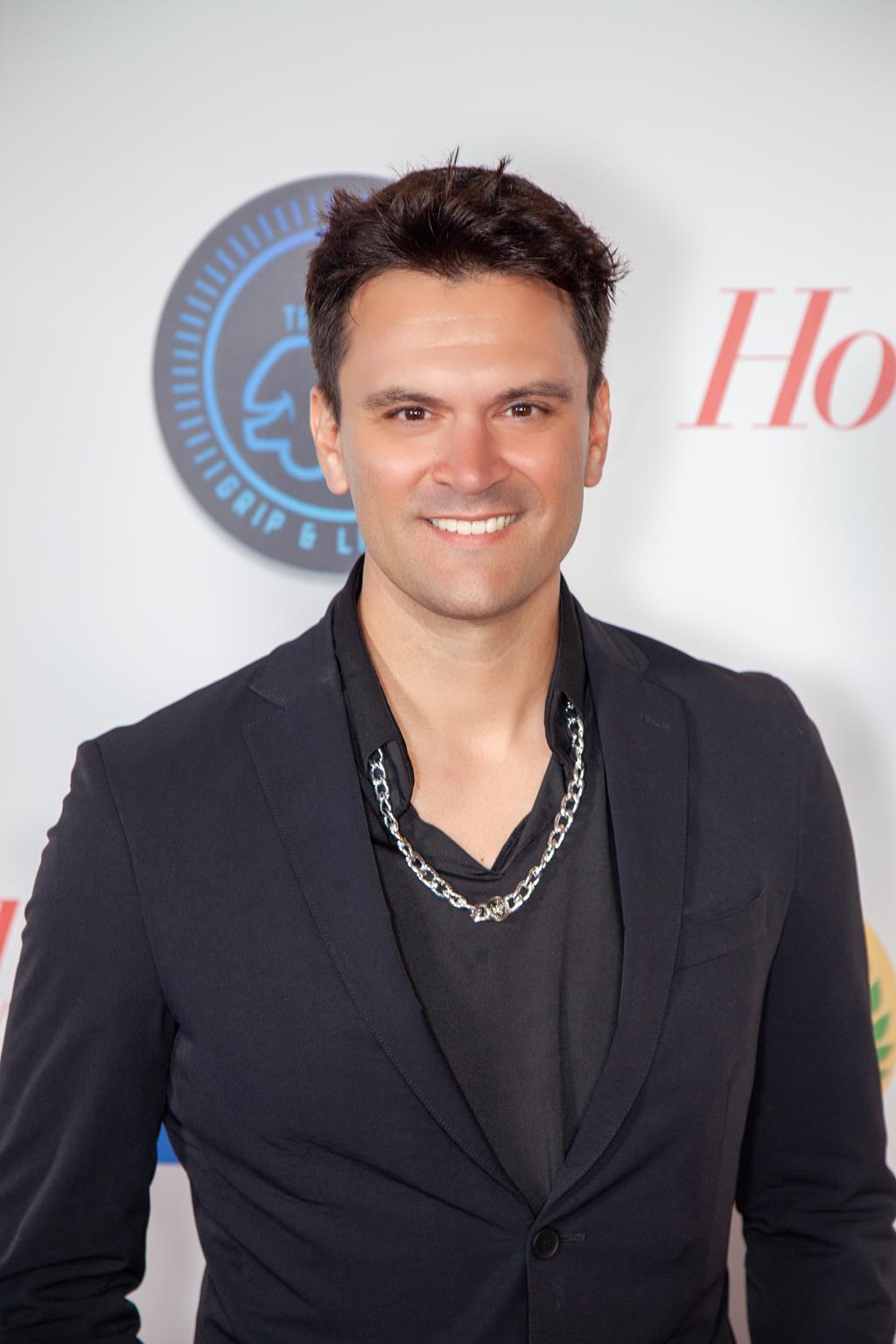
What was it like interviewing Tim Burton at the Burbank International Film Festival? What insights did you gain from talking with him, and how did this experience influence your view of the film industry?
Interviewing Tim Burton at the Burbank International Film Festival was an absolute dream come true. His cinematic masterpieces have not only captivated audiences worldwide but also played an instrumental role in shaping my own creative sensibilities during my formative years. The opportunity to engage in dialogue with someone whose work has left an indelible mark on the landscape of filmmaking was nothing short of surreal.
Having first crossed paths with Tim Burton as a teenager and being struck by his kindness and supportiveness, this encounter felt like a full-circle moment. Reconnecting with him years later, albeit in a professional capacity, evoked a profound sense of gratitude and nostalgia. It was a testament to the enduring impact of his artistry on my journey as a filmmaker.
In terms of insights gained from our conversation, delving into Tim Burton’s creative process and storytelling approach provided invaluable perspective. His ability to infuse whimsy and darkness in equal measure, crafting narratives that resonate on both visceral and emotional levels, was truly enlightening. Moreover, his unwavering commitment to staying true to his unique vision amidst the ever-evolving landscape of the film industry served as a poignant reminder of the importance of authenticity and artistic integrity.
This experience served to reaffirm my belief in the transformative power of storytelling and the boundless possibilities inherent in the cinematic medium. It reinforced my resolve to approach filmmaking with a sense of purpose and passion, embracing the inherent challenges while staying true to my creative vision. Overall, interviewing Tim Burton was not only a highlight of my career but also a profound catalyst for further growth and exploration within the film industry.
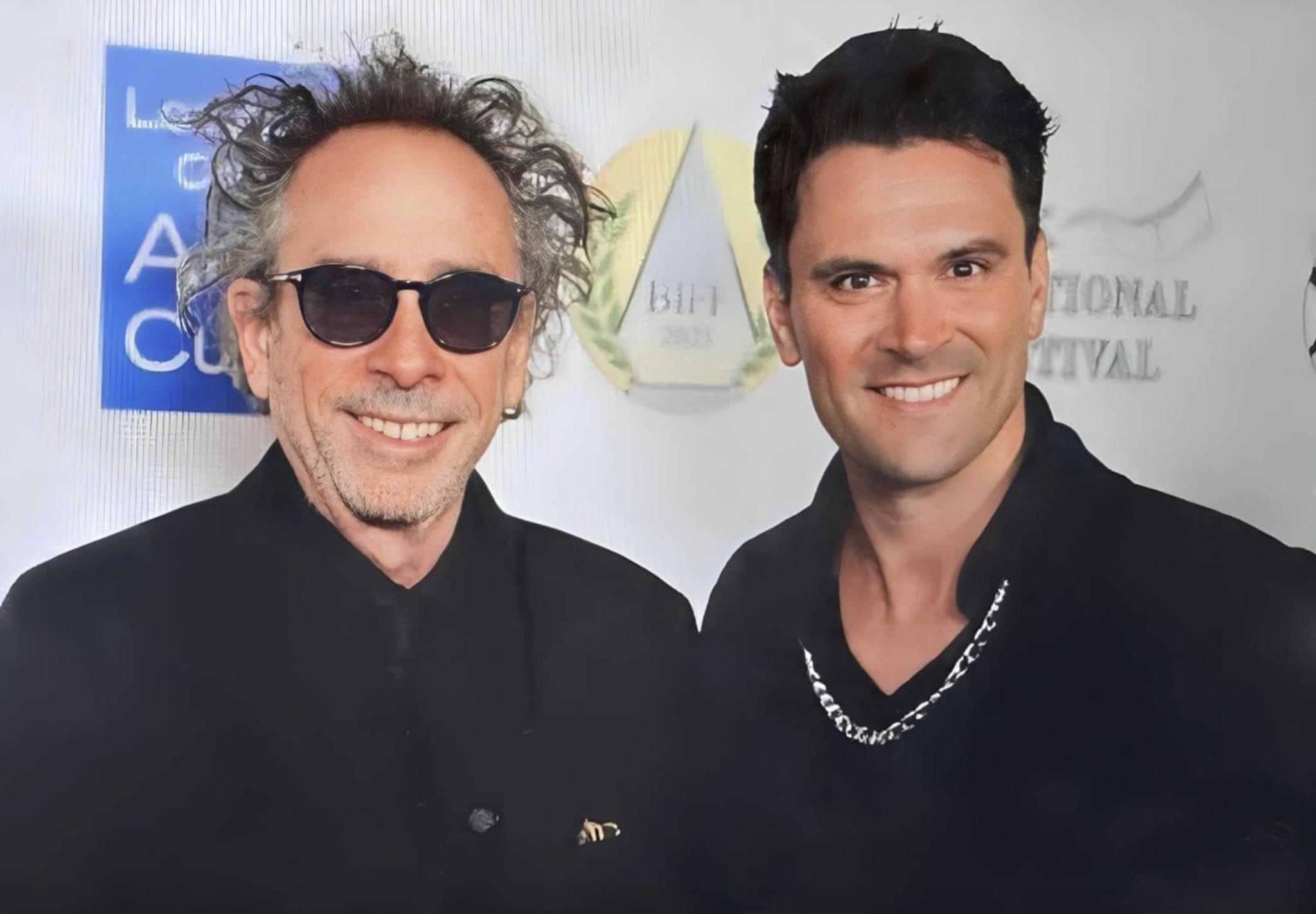
As an executive producer, you’ve worked on various projects, from short films to TV series. What do you find most rewarding in each of these formats, and how do they differ in terms of production?
In my capacity, I’ve had the privilege of overseeing a diverse array of projects spanning from short films to television series. While each format presents its unique set of challenges and rewards, there’s a common thread that runs through them all—the collaborative spirit and dedication of the team involved.
Regardless of the format, production invariably unfolds along a similar trajectory, characterized by the need to navigate obstacles such as budget constraints, actor availability, and scheduling complexities. Whether orchestrating the logistics of a short film shoot spanning a few days or coordinating the intricate production process of a television series over the course of weeks, the imperative remains the same: to stay focused, remain adaptable, and ensure the seamless execution of the project at hand.
One of the most rewarding aspects of working across these different formats lies in witnessing the collective effort of everyone involved coming to fruition. It’s a testament to the passion, expertise, and commitment of our cast and crew, each bringing their unique talents and perspectives to the table. From the director’s vision to the dedication of the production team, every individual plays a pivotal role in realizing the creative vision and bringing the project to life.
Moreover, the scope and scale of each format offer distinct opportunities for creative expression and storytelling. While short films may afford a more condensed narrative canvas, television series provide the space for deeper character development and narrative exploration over multiple episodes or seasons. Navigating these nuances demands a nuanced approach, one that balances artistic vision with logistical pragmatism.
Ultimately, whether producing a short film or a television series, the ethos remains rooted in fostering a collaborative environment built on trust, respect, and mutual support. It’s this collective synergy that fuels the creative process and imbues each project with its unique essence, making the journey as rewarding as the final product.
You are a cousin of Lisa Marie Presley, daughter of Elvis Presley. How has this connection to such an iconic family influenced your career and your view of the entertainment industry?
Growing up in my family undoubtedly shaped my perspective on both my career and the entertainment industry at large. As I began to grasp the significance of my family ties, particularly in relation to Elvis, I found myself navigating a unique set of challenges and opportunities from a young age.
During my formative years, when I was just beginning to comprehend the magnitude of my Elvis’ legacy, my cousin Lisa’s marriage to Michael Jackson thrust our family into the spotlight. This spotlight, however, cast a complex shadow over my own sense of identity. It became increasingly difficult to discern genuine friendships from those motivated by ulterior motives, as some individuals sought to capitalize on my family connections.
As a teenager, I was exposed to the inner workings of Hollywood, as Lisa brought me to various industry events and engagements. This was a time when reality television and controversy seemed to dominate the cultural landscape, offering me a firsthand glimpse into the darker side of the entertainment industry. Tragically, I also experienced the loss of friends and family members amidst the whirlwind of fame and notoriety.
For much of my life, I grappled with the weight of others’ expectations and perceptions based on my family background. While it afforded me certain privileges and opportunities, it also imposed a burden of living up to a certain image. However, a pivotal moment occurred roughly a decade ago when I resolved to no longer allow others’ perceptions to define my sense of self-worth.
This realization prompted me to reassess my relationships and disentangle myself from those who sought to exploit my family. It was a period of profound introspection and growth, marked by both highs and lows. Yet, through it all, I emerged with a newfound sense of resilience and self-assurance.
I am deeply appreciative of the diverse experiences—both uplifting and challenging—that have intricately woven together to shape my journey thus far. Each hurdle has served as a profound lesson, guiding me towards a richer understanding of myself and my role within the entertainment industry. Today, I stand resolute in my commitment to be independent of the shadows cast by my familial connections and to carve out my own path. I am on my own journey and mission in life.
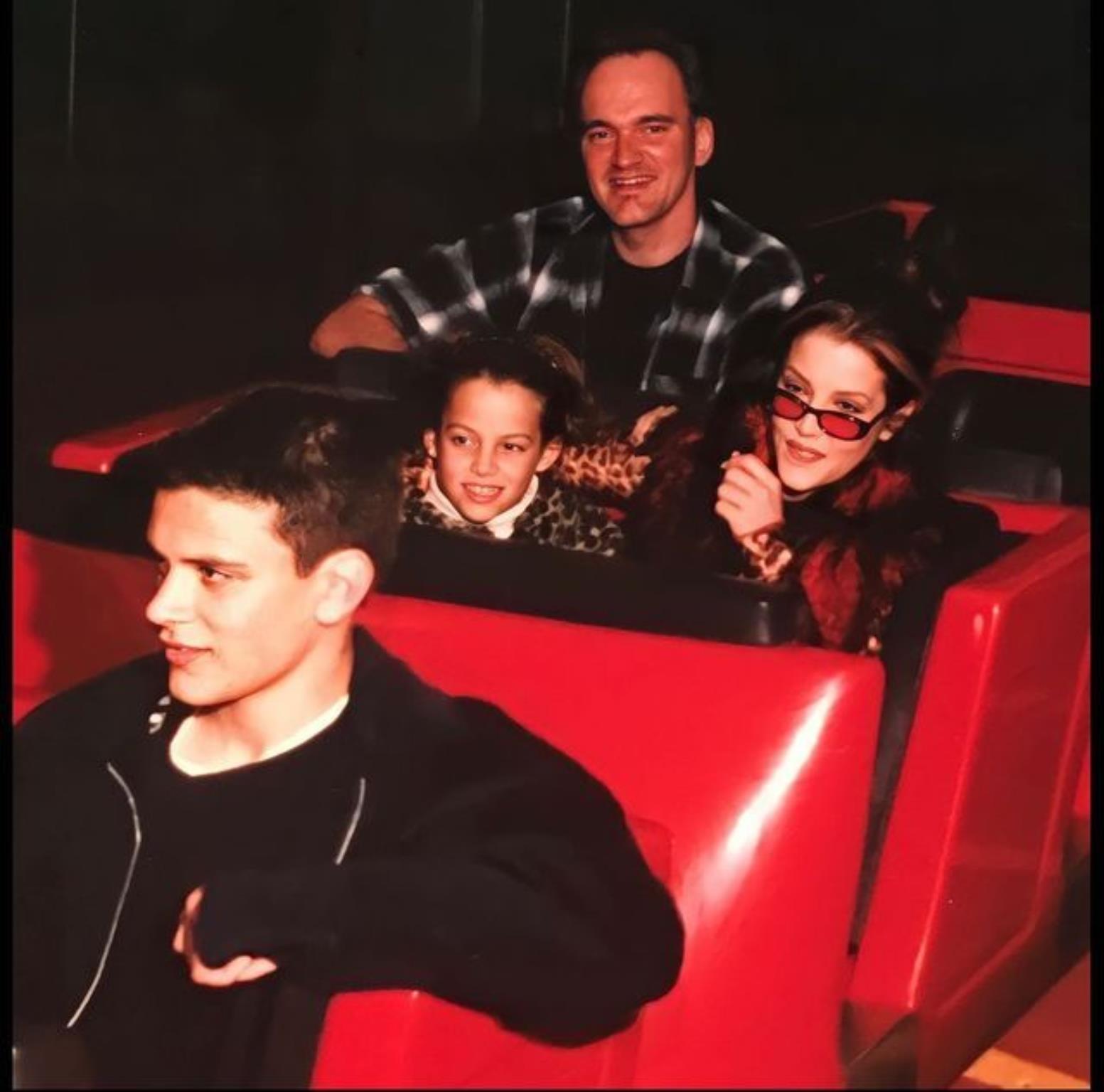
Your short film “Plastic Daydream” gained recognition and awards. How do you handle the pressure to create, and what inspires your creative choices?
When immersed in a project I’m passionate about, and surrounded by exceptionally talented individuals, the pressure to perform dissipates, replaced instead by a drive to deliver excellence. Collaborating with a luminary like Shari Belafonte, whom I’ve known and admired for years, and who brings her own remarkable legacy to the table, was undeniably inspirational. Our synergy and shared commitment to the craft fueled the creative process, allowing us to channel our collective energies into bringing “Plastic Daydream” to life.
Rather than succumbing to external pressures, I focus on the intrinsic motivation to do justice to the story and vision at hand. This inner drive, coupled with the collaborative dynamic of our team, fosters an environment where creativity thrives and artistic expression flourishes. The recognition and accolades we received for our efforts serve as a testament to the power of teamwork and the transformative potential of storytelling.
In essence, the creative choices I make are inspired by a combination of personal passion, collaborative synergy, and a dedication to craftsmanship. It’s the collective energy and shared vision of our team that propels us forward, allowing us to transcend pressure and embrace the joy of bringing stories to life on screen.
Besides producing and directing, you also act. How do you balance these different roles, and what skills do you think are most important in each of them?
Acting has been a passion of mine since childhood, influenced by the multimedia landscape that defined my formative years as a millennial. Growing up immersed in television, video games, and computers shaped my perception of the world and fueled my love for storytelling. From a young age, I gravitated towards movies, drawn to the transformative power of characters and narratives on screen.
In college, I delved deeper into the intricacies of the media landscape, pursuing a degree in Communication Studies. This academic journey provided me with a comprehensive understanding of media theory and production techniques, laying the groundwork for my multifaceted career in the entertainment industry.
Upon graduation, I embarked on a professional path at WME, where I honed invaluable skills in discipline, organization, and work ethic. Working within a renowned talent agency afforded me a holistic perspective of the industry, allowing me to navigate the intricacies of production and representation from diverse vantage points.
Balancing the roles of producer, director, and actor necessitates a multifaceted skill set, each demanding its unique blend of talents and capabilities. As an actor, empathy, emotional intelligence, and a keen understanding of character dynamics are paramount. It’s about immersing oneself in the mindset of the character and bringing their story to life with authenticity and nuance.
As a producer, organizational prowess, strategic thinking, and effective communication are key. From conceptualizing projects to overseeing logistics and managing budgets, it’s about orchestrating the myriad components of production with precision and foresight.
Similarly, directing requires visionary leadership, creative vision, and the ability to collaborate effectively with cast and crew. It’s about translating the script’s essence into compelling visual storytelling while fostering an environment that nurtures creativity and innovation.
Ultimately, the ability to seamlessly transition between these roles lies in the cultivation of a diverse skill set, informed by a deep-seated passion for storytelling and a commitment to excellence. It’s about leveraging my experiences and expertise across disciplines to craft impactful narratives that resonate with audiences and leave a lasting impression on the cinematic landscape.
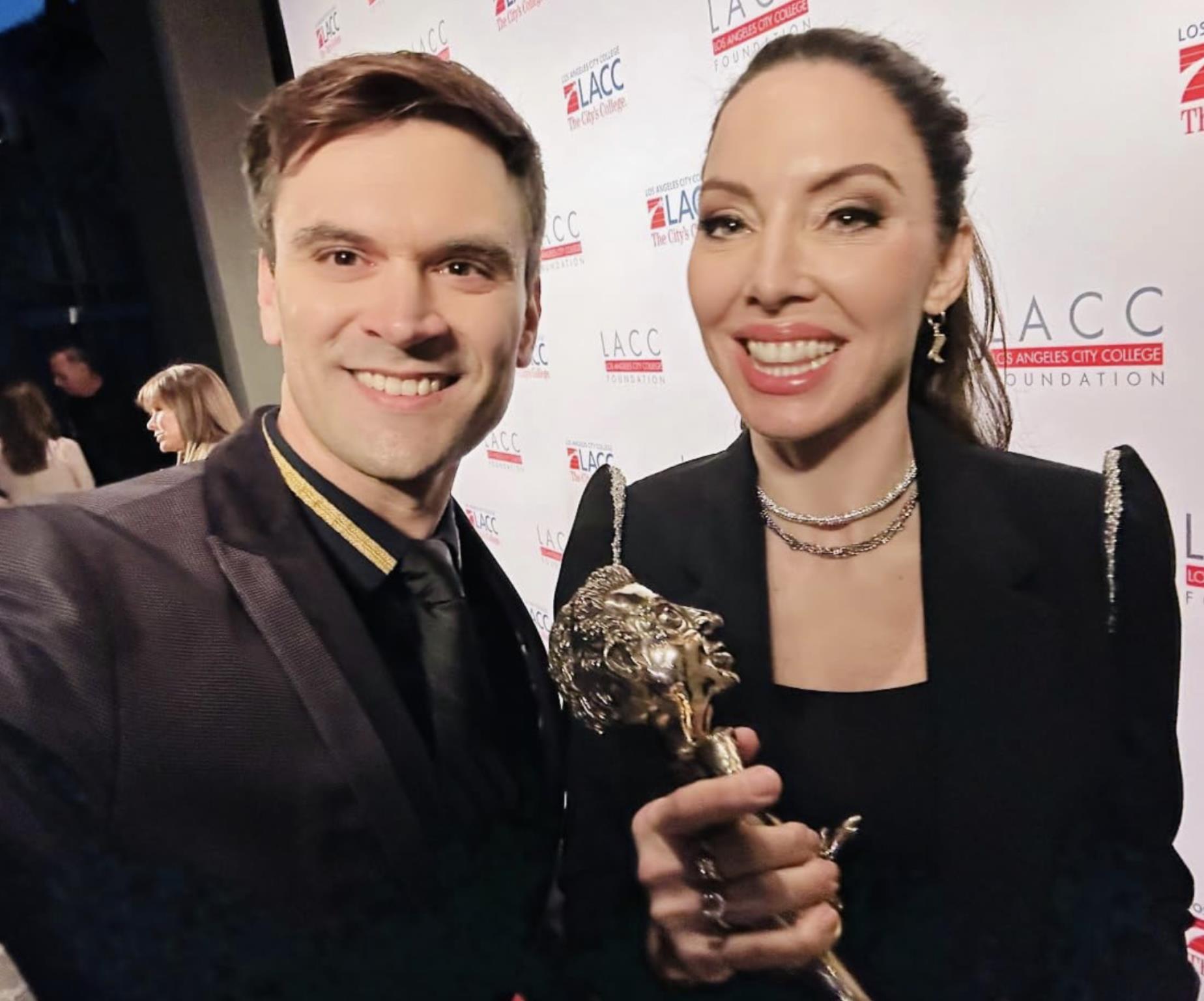
Content production is an important part of the modern entertainment industry. How do you see the future of content creation, and what trends do you think will be most influential in the coming years?
It’s fascinating to observe the evolving landscape of content creation in today’s entertainment industry. With the advent of new technologies and platforms, there’s been a notable shift towards shorter, more digestible forms of entertainment, exemplified by the rise of platforms like Instagram Reels and TikTok. These bite-sized formats cater to the purported shrinking attention spans of modern audiences, offering quick bursts of engaging content tailored to our on-the-go lifestyles.
However, amidst this proliferation of short-form content, there’s also a burgeoning appetite for long-form storytelling and substantive conversations. Podcasts, in particular, have surged in popularity, providing audiences with a platform for authentic, in-depth discussions on a wide range of topics. In an era characterized by information overload and superficial engagement, audiences crave authenticity and substance, seeking out content that resonates with their values and interests on a deeper level.
Looking ahead, I believe the future of content creation will be defined by a convergence of these trends—short-form content optimized for immediacy and shareability, alongside long-form narratives that prioritize authenticity and meaningful connection. Successful content creators will be those who can strike a balance between capturing attention in the digital realm and fostering genuine engagement with their audience.
Ultimately, regardless of format or platform, the most influential content will be characterized by its ability to have genuine connections with audiences, sparking conversations, and fostering a sense of community. As long as creators remain attuned to the evolving needs and preferences of their audience and stay true to their authentic voice, the possibilities for content creation in the future are boundless.
For someone starting in the entertainment industry, what advice would you give about building a sustainable and diversified career?
I’m always hesitant to offer advice because what has worked for me may not necessarily apply to someone else’s journey. However, I can certainly share insights gleaned from my own experiences navigating the entertainment industry.
One of the most valuable lessons I’ve learned is the importance of staying true to oneself and following one’s passions. Early in my career, I grappled with the pressure of conforming to others’ expectations and allowing external influences to dictate my path. It wasn’t until I embraced my authentic voice and pursued projects that truly resonated with me that I began to find fulfillment and success.
It’s crucial to tune into your inner compass and trust your instincts. While seeking guidance and mentorship can be beneficial, ultimately, the decisions you make should align with your values, aspirations, and unique talents. Don’t underestimate the power of self-awareness and self-belief in charting a sustainable and fulfilling career trajectory.
Moreover, building a diversified career in the entertainment industry requires adaptability and resilience. Embrace opportunities for growth and don’t be afraid to explore different facets of the industry. Whether it’s producing, directing, acting, or other creative pursuits, cultivating a diverse skill set can open doors to new possibilities and enhance your marketability.
Above all, maintain a steadfast belief in yourself and your abilities. The road to success may be fraught with challenges and setbacks, but perseverance and a positive mindset can carry you through even the toughest times. Trust in your capacity to overcome obstacles and continue moving forward, fueled by passion, determination, and a unwavering belief in your own potential.
Follow Kash Hovey on Instagram


